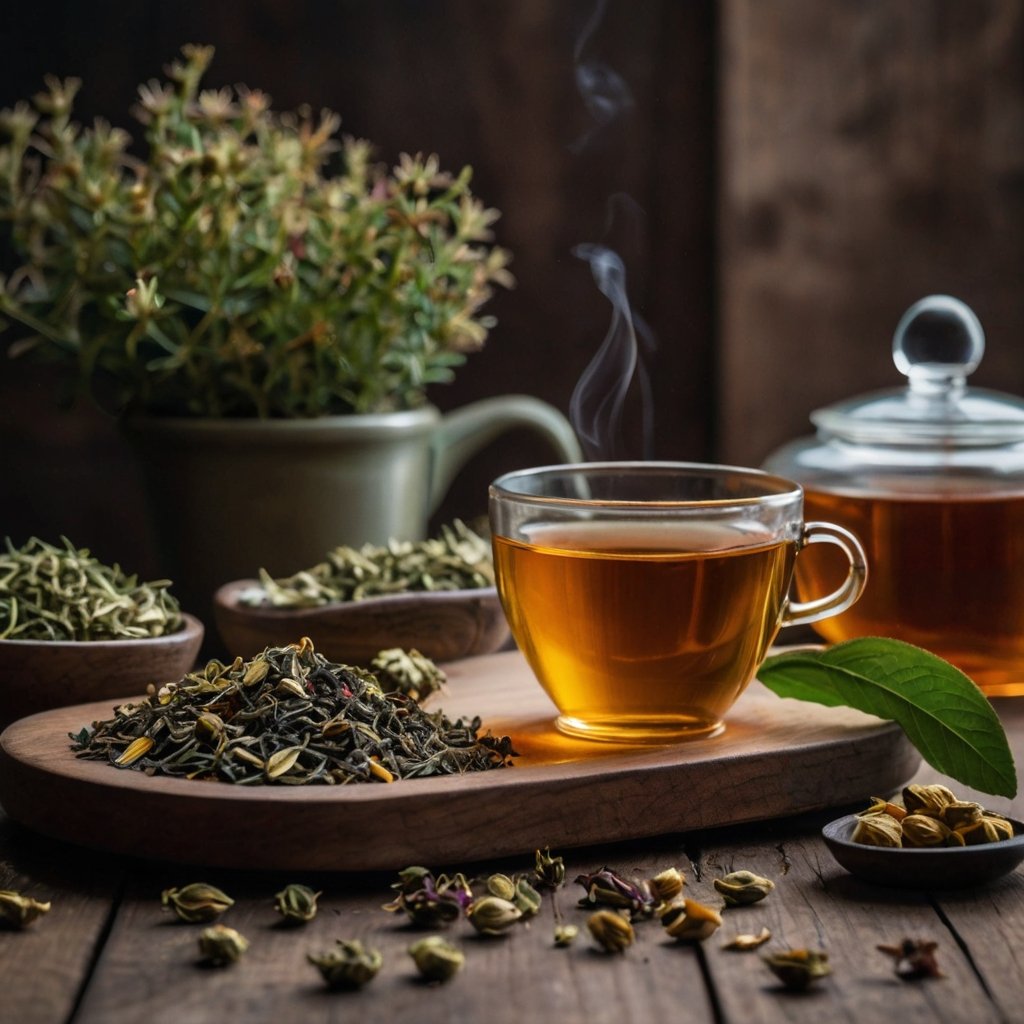Struggling to fall asleep or waking up feeling groggy? You’re not alone. Millions of people turn to natural sleep aids—like herbal teas and supplements—as gentle, non-habit-forming ways to improve rest. Unlike pharmaceuticals, many natural remedies support your body’s existing rhythms, helping you relax both physically and mentally.
In this article, we’ll explore some of the most effective herbal teas and natural supplements for better sleep, including how they work, when to take them, and any potential risks.
1. Why Choose Natural Sleep Aids?
While over-the-counter medications can offer quick relief, they often come with side effects like grogginess, dependency, and poor-quality sleep. Natural alternatives are often milder, and focus on relaxation and hormone balance, rather than forcefully inducing unconsciousness.
Key benefits include:
- Fewer side effects
- Supports natural circadian rhythm
- Often provides other health benefits (like digestion or stress relief)
- Easy to incorporate into a calming nighttime routine
2. Herbal Teas That Promote Sleep
Herbal teas have been used for centuries to ease anxiety, promote calm, and support better rest. They’re caffeine-free and can become a soothing nightly ritual.
Chamomile Tea
- How it works: Contains apigenin, an antioxidant that binds to brain receptors and promotes sleepiness.
- When to drink: 30–45 minutes before bed.
- Extra benefits: Reduces anxiety and supports digestion.
- Caution: Avoid if you have allergies to ragweed.
Lavender Tea
- How it works: The scent of lavender has calming effects; the tea may reduce heart rate and stress.
- When to drink: 1 hour before sleep.
- Extra benefits: Eases nervous tension and headaches.
Lemon Balm Tea
- How it works: A member of the mint family, lemon balm boosts GABA activity in the brain, which helps regulate mood and sleep.
- When to drink: Early evening or before bed.
- Extra benefits: May ease digestive issues and mild anxiety.
Passionflower Tea
- How it works: Increases gamma-aminobutyric acid (GABA) in the brain, reducing brain activity and helping you relax.
- When to drink: About 30 minutes before bed.
- Extra benefits: Often used to calm nerves and reduce stress.
Valerian Root Tea
- How it works: Valerian is one of the most studied herbal sleep aids. It appears to increase GABA and reduce sleep latency.
- When to drink: 1 hour before bedtime.
- Extra benefits: May reduce nighttime awakenings.
- Caution: Has a strong, earthy taste and may cause drowsiness the next day in some people.
Peppermint Tea
- How it works: Doesn’t directly induce sleep but helps by reducing tension and improving digestion, which may ease nighttime discomfort.
- When to drink: After dinner or before bed.
- Extra benefits: Reduces bloating and headaches.
3. Natural Supplements That Support Sleep
If you need something stronger than tea, several natural supplements can help reset your internal clock or promote deeper rest. Always consult your doctor before trying supplements—especially if you’re taking medications or have health conditions.
Melatonin
- What it is: A hormone naturally produced by your pineal gland in response to darkness.
- How it works: Helps regulate your sleep-wake cycle.
- When to take: 30 minutes to 1 hour before bedtime.
- Ideal for: Jet lag, night-shift work, occasional insomnia.
- Dosage: 0.5–3 mg is usually effective; higher doses are not always better.
Magnesium
- What it is: A mineral involved in hundreds of body processes, including nerve function and muscle relaxation.
- How it works: Increases GABA, reduces cortisol levels, and helps calm the nervous system.
- When to take: In the evening, with or after dinner.
- Best forms: Magnesium glycinate or citrate (gentle on the stomach).
- Extra benefits: May help with muscle cramps and PMS.
L-Theanine
- What it is: An amino acid found in tea leaves.
- How it works: Promotes relaxation without sedation by increasing alpha brain waves.
- When to take: 30–60 minutes before sleep.
- Extra benefits: Can reduce anxiety and improve focus during the day.
GABA (Gamma-Aminobutyric Acid)
- What it is: A neurotransmitter that helps quiet brain activity.
- How it works: Reduces mental chatter and promotes calm.
- When to take: 1 hour before bed.
- Caution: Some forms may not cross the blood-brain barrier effectively.
5-HTP (5-Hydroxytryptophan)
- What it is: A precursor to serotonin, which then converts to melatonin.
- How it works: Enhances sleep by increasing serotonin and melatonin levels.
- When to take: In the evening, with food.
- Caution: Not to be combined with antidepressants or mood medications.
4. Creating a Bedtime Tea or Supplement Routine
Sample Routine:
- 7:00 pm: Eat a light dinner
- 8:00 pm: Take magnesium or L-theanine
- 8:30 pm: Brew chamomile or passionflower tea
- 9:00 pm: Begin nighttime routine (dim lights, unplug devices)
- 9:30 pm: Take melatonin (if needed)
- 10:00 pm: Lights out
Building a consistent and calm routine enhances the effectiveness of any supplement or herbal aid. It also tells your body, “It’s time to sleep.”
5. Precautions and Side Effects
Even natural remedies can have side effects or interactions. It’s important to:
- Start with low doses
- Monitor how you feel the next morning
- Avoid combining too many aids at once
- Avoid valerian and melatonin before driving or operating machinery
Always consult a healthcare professional if you are pregnant, nursing, or on medication.
Sleep Better the Natural Way
You don’t need to rely on harsh sleep medications to improve your rest. A well-chosen herbal tea or supplement can ease you into sleep gently, helping both your body and mind relax. The key is consistency and alignment with a calming bedtime routine.
Experiment with different combinations and notice how your body responds. Whether it’s a cup of lemon balm tea, a low dose of magnesium, or a drop of lavender oil on your pillow, natural sleep support is more accessible—and effective—than ever.
